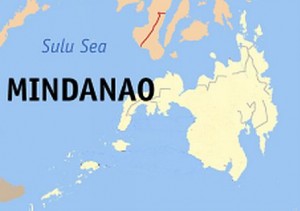Mindanao de-mining project seen to create farmlands, livelihood
 MANILA, Philippines – A demining project that will bring experts to clear unexploded bombs in Mindanao may allow more than 100,000 residents living in Southern Philippines’ conflict-affected areas to effectively cultivate their lands.
MANILA, Philippines – A demining project that will bring experts to clear unexploded bombs in Mindanao may allow more than 100,000 residents living in Southern Philippines’ conflict-affected areas to effectively cultivate their lands.
In a joint statement released last week, the Philippine Campaign to Ban Landmines (PCBL), the Swiss Foundation for Mine Action, and the European Union (EU) said they would work closely with the Philippine government and the Moro Islamic Liberation Front (MILF) in implementing the project that aims to reduce threats from land mines, unexploded artillery and mortar shells left by the decades-long war between government soldiers and rebels in the area.
It said that the project, backed by P29 million funding from the EU, would identify and clear suspected hazardous areas in 21 municipalities in Maguindanao, Cotabato, Lanao del Norte, and Lanao del Sur. It would cover a total of 450, 629 hectares inhabited by 814, 651 people.
“If 15 percent of these affected municipalities are found to be suspected hazardous areas, the project will potentially release 67,594 hectares of land for increased livelihood for 122,198 direct beneficiaries,” it said.
It added that aside from the objective of increased access to the land, the project would also pave the way for enhanced safety and security and would “free the beneficiaries from the fear of being killed or injured by these unfortunate relics of war.”
“In the Philippines, 496 casualties have been identified from land mines, explosive remnants of war (ERW), and improvised explosive devices (IEDs) since 1999. In 2011, 34 casualties had been identified, including 14 children,” it said.
Gov’t, MILF join hands to clear ‘remnants of war’
It noted that the project, though long overdue, came at a “perfect time” as it would be implemented after the recent signing of the government-MILF Framework Peace Agreement. The pact would pave the way for the creation of a new autonomous region to be called Bangsamoro, and aims to achieve a final by 2016, ending an insurgency that has claimed an estimated 150,000 lives since the 1970s.
In interviews via email, Alfredo Lubang, National Coordinator of the PCBL, noted that what was unique about the project was that the objectives would be the output of the negotiation and dialogue amongst previously fighting groups.
“This as an opportunity to prove that both warring parties can work together and take on the responsibilities to address the consequences of decades of fighting,” Lubang said.
Lubang noted that the implementation of the project would be based on the ‘Guidelines’ signed by both panels on May 5, 2010 in Malaysia.
He added that when the PCBL made the joint proposal with Swiss Foundation for Mine Action, they emphasized that “the idea of a joint clearance operations in the context of an ongoing process will boost the trust confidence of both parties to continue the peace negotiations.”
The joint statement with the EU also noted that both panels had expressed their “endorsement, cooperation, and support” for the project through separate letters sent to the EU and the PCBL in November 2011.
Lubang said that under the guidelines, a Task force composed of representatives from the government, the MILF, the PCBL, the Swiss Foundation for Mine Action, and an international monitoring team would be formed to lead the project, which would be implemented for a duration of 12 months.
“Hopefully, we will begin the trainings by December and hopefully the Task Force will be functional by then. We are looking at January for the start of the field operations,” Lubang said.
He added that British national Craig Willis and Swedish expert Paul Boncz, both from the Swiss Foundation for Mine Action, were in Cotabato to oversee the project.
“This is now a phase where we are translating the words of the agreements into deeds and making sure that our communities are safe and threats of unexploded remnants of war are reduced,” Lubang added.














